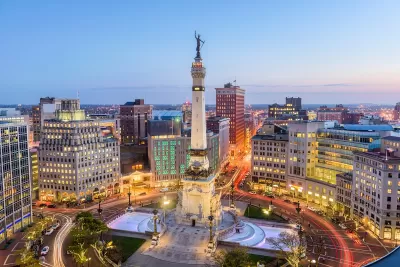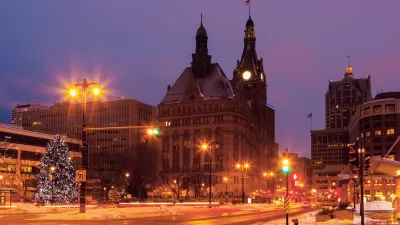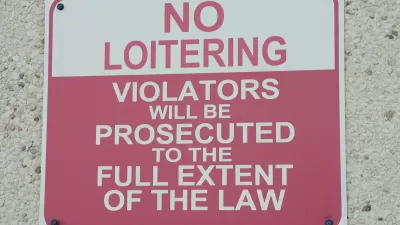The city’s progress in building supportive housing units has not kept up with the rising numbers of residents experiencing homelessness.

An article in Mirror Indy describes how the city and local organizations in Indianapolis are working to build supportive housing facilities that offer wraparound services to unhoused residents that can help them transition into more stable housing. “Despite success with supportive housing projects that bring people out of homelessness and provide a safe place to work through issues, Indianapolis fell short of an ambitious goal set by stakeholders six years ago.”
The goal was to end homelessness longer than 30 days by 2023. But in January 2024, the number of people experiencing homelessness counted in the city stood at 1,701. Meanwhile, it can take up to 90 days for housing voucher recipients to access housing. The city is maintaining its efforts to build supportive housing while also working with landlords to make more existing housing units available to people using vouchers.
The city is attempting to take a ‘Housing First’ approach, a strategy that prioritizes getting people into housing as soon as possible while providing access to supportive services. “There’s local evidence that shows permanent supportive housing works. Leaders at DMD, CHIP, and Horizon House all said retention rates are higher than the national average — above 90 percent.”
Officials say complicated funding streams and a “tough environment to do development” slowed the city’s progress. The local housing authority is also in the process of being reorganized “after years of mismanagement and dysfunction.”
FULL STORY: Ending homelessness: Indianapolis’s struggle to build more supportive housing

Montreal Mall to Become 6,000 Housing Units
Place Versailles will be transformed into a mixed-use complex over the next 25 years.

Planetizen Federal Action Tracker
A weekly monitor of how Trump’s orders and actions are impacting planners and planning in America.

DARTSpace Platform Streamlines Dallas TOD Application Process
The Dallas transit agency hopes a shorter permitting timeline will boost transit-oriented development around rail stations.

Interactive Map Reveals America's “Shade Deserts”
Launched by UCLA and American Forests to combat heat-related deaths, the tool maps the shade infrastructure for over 360 U.S. cities.

Bicycles and Books — In Sacramento, Libraries Now Offer Both
Adult library card holders can check out e-bikes and e-trikes for up to one week.

Colorado Landfills Emit as Much Pollution as 1M Cars
Landfills are the third-largest source of methane pollution in Colorado, after agriculture and fossil fuel extraction.
Urban Design for Planners 1: Software Tools
This six-course series explores essential urban design concepts using open source software and equips planners with the tools they need to participate fully in the urban design process.
Planning for Universal Design
Learn the tools for implementing Universal Design in planning regulations.
City of Mt Shasta
City of Camden Redevelopment Agency
City of Astoria
Transportation Research & Education Center (TREC) at Portland State University
US High Speed Rail Association
City of Camden Redevelopment Agency
Municipality of Princeton (NJ)





























